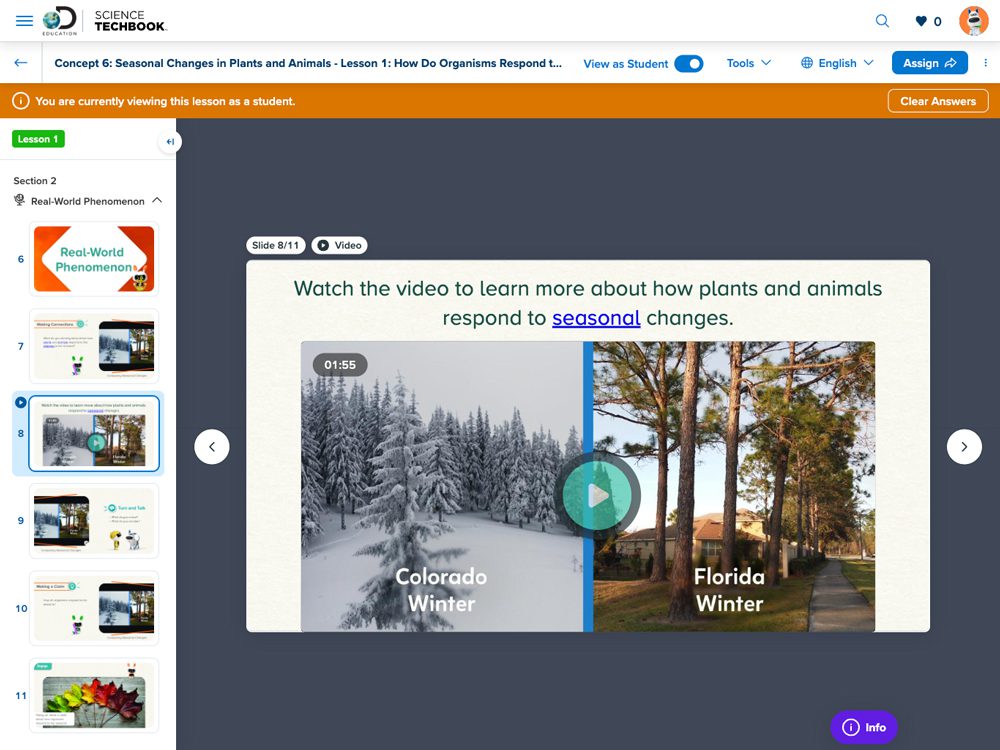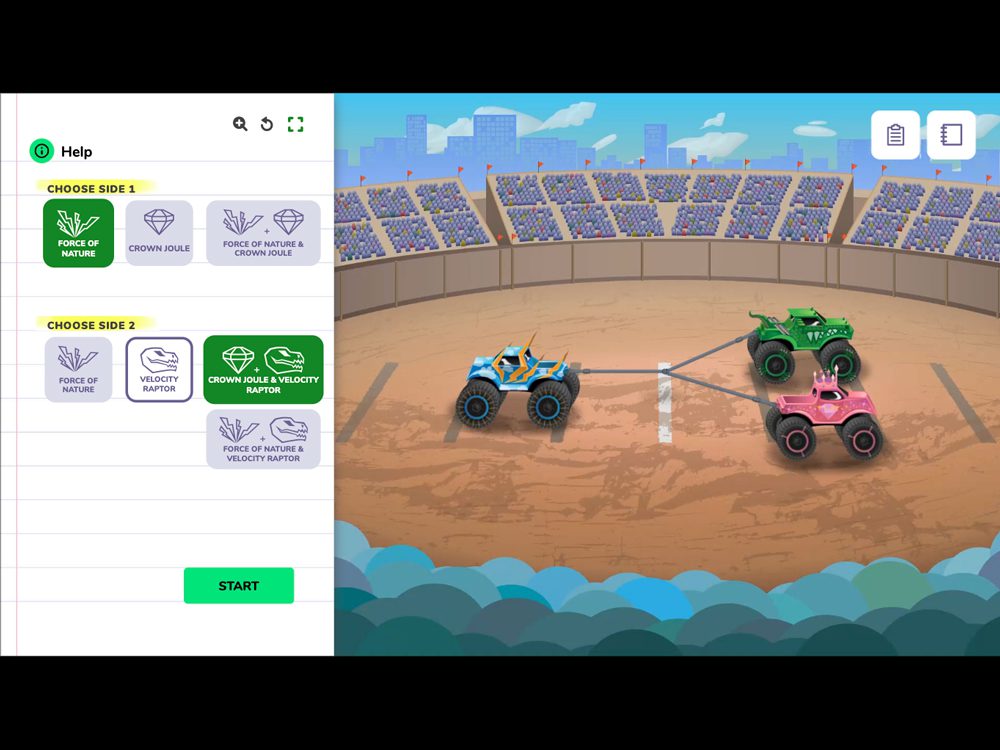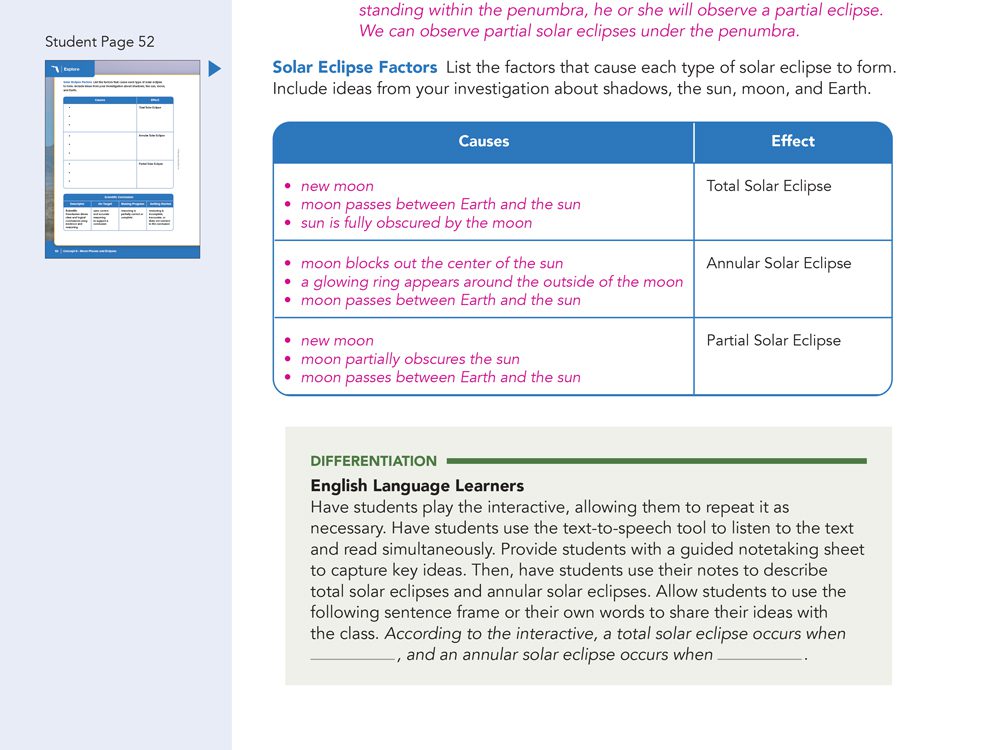
Let’s get started with your review of grades K-8 and see how this engaging program supports all Florida classrooms!
Discovery Education’s Science Techbook for Florida is a comprehensive core curriculum designed for Florida teachers and students.
Science Techbook for Florida strategically and systematically integrates the Florida State Academic Standards for Science - including the Nature of Science benchmarks.
Summative assessments are written to test item specifications for the Florida Statewide Science Assessment.
Easily meet lab and activity requirements with engaging Hands-on Activities and Interactives that fit into a standard lesson.
Inform instruction with ongoing formative and summative assessments, many with auto-grading. Progress monitoring allows for district-wide reports.
Science Techbook for Florida provides a complete science curriculum in English and Spanish.
Science phenomena and activities often feature Florida locations so students can truly see themselves in the program.
Science Techbook for Florida is a hands-on and immersive active learning program. Watch students transform into junior scientists and engineers through engaging real-world lessons.

Students are motivated to understand the science content because it’s exciting and relevant.






Students build conceptual understanding and nature of science skills through hands-on activities, interactives, and grade-level appropriate scientific texts in every Concept.






Point-of-use instructor guidance includes differentiation, common misconceptions, and English Language Learner support.



To meet the needs of instructors, Discovery Education offers flexible professional learning options, including in-person and remote sessions. One-on-one and small-group sessions are available. Topics include planning lessons, implementing instructional strategies, collecting data on student learning, and engaging students with high-quality materials.
Make the most of your time! Science Techbook for Florida includes intuitive digital tools that personalize the student experience and instructor resources that streamline processes.
The Science Techbook for Florida Dashboard is a data collection and student engagement tool. All data collected from completed student activities, including embedded technology-enhanced item responses, feed to the Dashboard.
Most assessment items are machine-scored to expedite the collection, analysis, and implementation of data in the cycle of learning. Rubrics are often available at point-of-use for constructed-response questions.
Science Techbook for Florida is compatible with a variety of learning management systems, including Google Classroom, Canvas, Schoology, Microsoft Teams, and more. For the latest information on integrations and access, visit the Discovery Education Help Center.
Science Techbook for Florida provides several formative and summative assessment opportunities, carefully embedded in the cycle of learning to help teachers guide their students to mastery of key learning targets and objectives.
These assessment opportunities allow teachers and students to monitor progress and provide direct practice questions written to the Florida Test Item Specifications across a variety of assessment formats. Ongoing formative assessment questions are embedded in the lessons – look for “What Did You Figure Out?”, “Check for Understanding”, and “Phenomenon Check-In” prompts.
In the Evaluate lessons in grades 3-8 you will find Concept Summative Assessments. The question types in these assessments are written to FL test item specifications. Many assessments are automatically graded and instructors can view individual student and class performance in the Concept Assessment Results section.
For more assessment information, view the Elementary and Middle School assessment flyers.
Science Techbook for Florida has four Units in every K-8 grade level. Units are divided into a series of Concepts purposely scaffolded to unpack the science ideas associated with the Units’ standards.
Each Concept contains a series of 5E lessons broken into learning activities that follow a logical progression and are designed to build student understanding of scientific concepts.
Instruction in each Concept launches with a real-world phenomenon to engage students and inspire them to make connections and ask questions that will drive their investigations. As students progress through the Concept, they circle back to the phenomenon to extend their understanding and explain it.